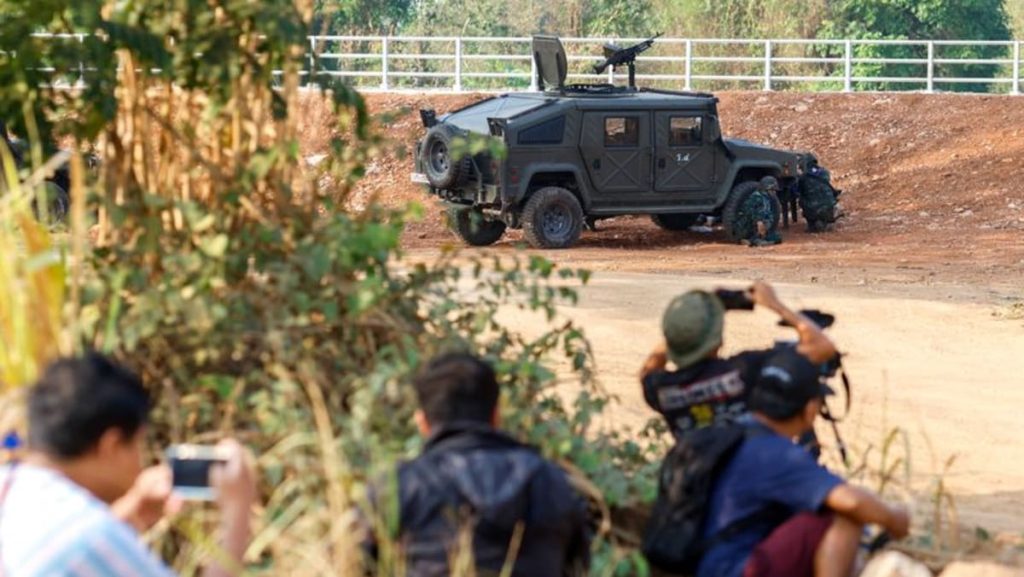rom the town of Myawaddy after facing heavy resistance from the Myanmar military, according to the official. The KNU had taken control of the town earlier in the month as part of a broader offensive against the ruling junta, which seized power in a coup earlier in the year. The withdrawal of KNU troops marks a setback for the rebel group, which had hoped to establish a foothold in the region and challenge the authority of the military regime.
The conflict in Myanmar has intensified in recent months as various rebel groups, including the KNU, have launched attacks against the military junta in response to the coup. The ruling junta has responded with a brutal crackdown on dissent, including the use of live ammunition and mass arrests of protesters. The escalation of violence has led to a growing humanitarian crisis in the country, with thousands of people displaced and in need of assistance. The international community has condemned the military’s actions and called for a return to democracy in Myanmar.
The KNU has been a key player in the conflict in Myanmar, with a long history of fighting for autonomy and independence for the Karen people. The group has previously entered into ceasefire agreements with the government, but those agreements have broken down in recent years as tensions between the two sides have increased. The KNU’s decision to engage in armed conflict with the military junta reflects a broader desire for democratic reform and self-determination among ethnic minority groups in Myanmar.
The conflict in Myanmar is rooted in decades of ethnic and political tensions, with various rebel groups fighting for greater autonomy and rights for their communities. The military junta, which ruled the country for decades before the recent coup, has long been accused of human rights abuses and repression of ethnic minorities. The current conflict represents a continuation of these long-standing grievances and a renewed push for democratic reform and equality for all people in Myanmar.
The international community has called for a peaceful resolution to the conflict in Myanmar and a return to democracy through dialogue and negotiations. However, the ruling junta has shown little willingness to engage in meaningful discussions with rebel groups and opposition forces, leading to a cycle of violence and repression. Despite the challenges, there are hopes for a peaceful settlement to the conflict through diplomatic efforts and pressure from the international community.
In conclusion, the conflict in Myanmar continues to escalate as rebel groups like the KNU challenge the authority of the ruling military junta. The recent withdrawal of KNU troops from Myawaddy marks a setback for the rebel group, but the broader struggle for democracy and self-determination in Myanmar is far from over. The international community must continue to support efforts for peace and dialogue in Myanmar to prevent further violence and protect the rights of all people in the country.















